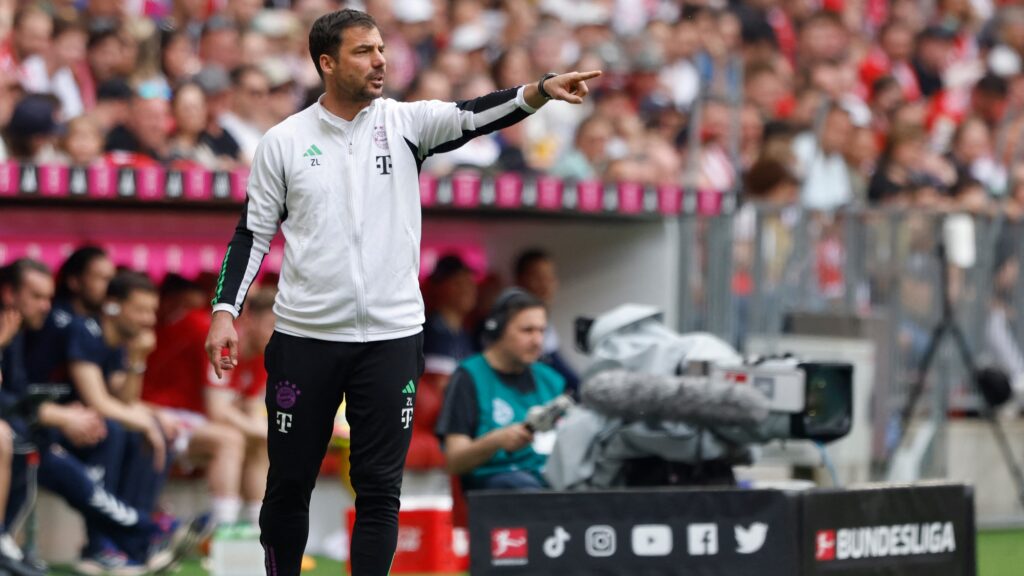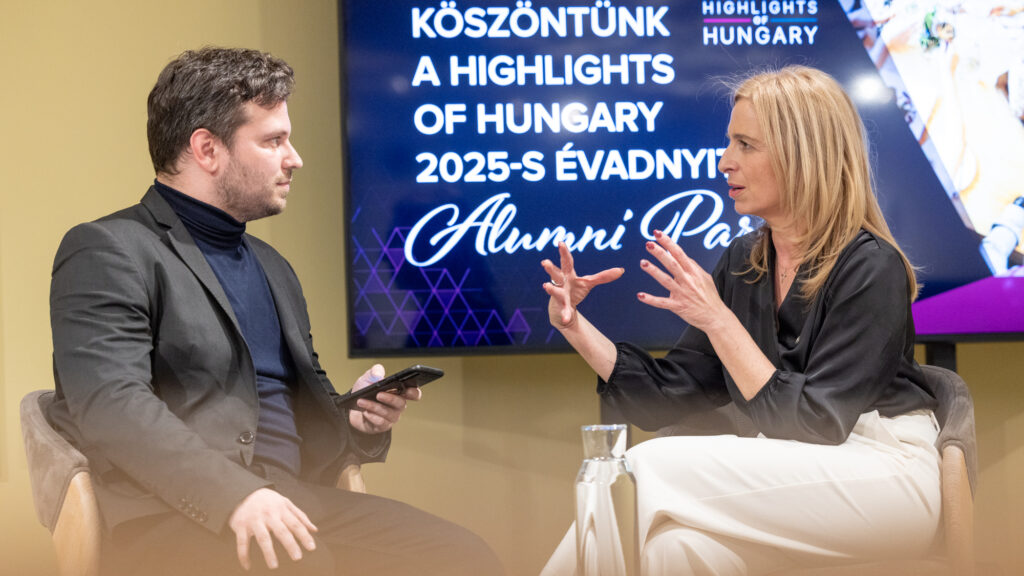Alexandra Szentkirályi, the Chairwoman of the Budapest branch of the ruling Fidesz party and 2024 Budapest Mayoral candidate, has launched a new talk show all about Hungary’s beloved capital city, titled At Home in Budapest — Talks With Alexandra Szentkirályi.
The first episode featured Koppány Kőrösi, urban planning expert, Endre Pallós prop master, Viktor Mitev location manager, and Minister of Foreign Affairs and Trade Péter Szijjártó of Hungary as guests.
Kőrösi shared that the big cities in the Central European region are in competition with each other. Prague, Warsaw, Vienna, and Budapest are all vying for foreign investments, tourists, or foreign university students on the global marketplace. Szentkirályi pointed out that, unlike the other aforementioned cities, Budapest has actually lost population, going from over 2 million in the 1990s to around 1.7 million today. Kőrösi explained that this is a so-called ‘metropolis effect,’ when large cities lose population to their surrounding agglomeration. The habitants move to so-called ‘sleeping towns,’ meaning that they go home for overnight, but they commute to the city for work and leisure. He pointed out that for example Cincinnati, Oho in the United States has faced this problem and they have managed to overcome it by now.
‘Unlike other big cities in the region, Budapest has actually lost population, going from over 2 million in the 1990s to around 1.7 million today’
As for tourism, both the host and the expert guest agreed that it should be about quality and not just quantity for Budapest. The Hungarian capital is an excellent conference destination. That is great, given the fact that, as Kőrösi pointed out, conference attendees and diplomats are the most valuable visitors in terms of per capita spending.
Two guests from the world of Hollywood joined Szentkirályi on stage next. Propmaster Endre Pallós and location manager Viktor Mitev have worked on such big-budget American films as Blade Runner 2049 (2017), Dune (2021), Dune Part Two (2024), and Alien: Romulus (2024). Pallós explained that Budapest is not an attractive location for foreign filmmakers solely because of the cheap labour costs. Cutting costs may be the top priority for small-budget productions, but not for big-budget Hollywood films. As he claims, the professionalism and level of expertise of Hungarian filmmakers are on the level of those in Western Europe, which is also why so many foreign films are being shot here.
Mitev explained that Budapest has the added benefit of fewer delays caused by traffic jams, as compared to a place like London, for example, even if Budapest locals may be surprised by that claim based on their own experience. He also highlighted the influence of late Hungarian American film producer Andy Vajna in convincing Hollywood studios to shoot films here, starting in the 1980s.
Szentkirályi Alexandra – Otthon Budapesten
Elindult Szentkirályi Alexandra új rendezvénysorozata, ami közös gondolkodásra hívja a budapestieket, hogyan tegyük még élhetőbbé, szerethetőbbé és fenntarthatóbbá fővárosunkat. Első rendezvény vendégei: 🟠 Kőrösi Koppány urbanisztikai szakember, 🟠 filmes szakemberek: Mitev Viktor location manager és Pallós Endre, a Prop Factory Studio vezetője, 🟠 Szijjártó Péter külgazdasági és külügyminiszter.
The most illustrious guest came at the end. Foreign Minister Péter Szijjártó started his conversation with Szenkirályi by saying that foreign visitors tend to equate Hungary with Budapest, so it is especially important that the city ‘gets its act together’. He also shared that while he travels an enormous amount due to the nature of his job, his trips are usually limited to airports, foreign ministries, and sometimes national parliaments, so he cannot really compare Budapest with other cities from a tourist’s perspective. One thing he did notice, however, is that unlike in Budapest, other major cities do not have a special lane reserved for cyclists on the road; rather, the bicycle lane is built next to the main road.
He also revealed to the audience that he enjoys the ‘arriving home part’ of his diplomatic trips the most; and that he usually takes diplomats visiting him in Budapest to the Puskás Arena, and have even played some football with them on the pitch as well.
Related articles:








